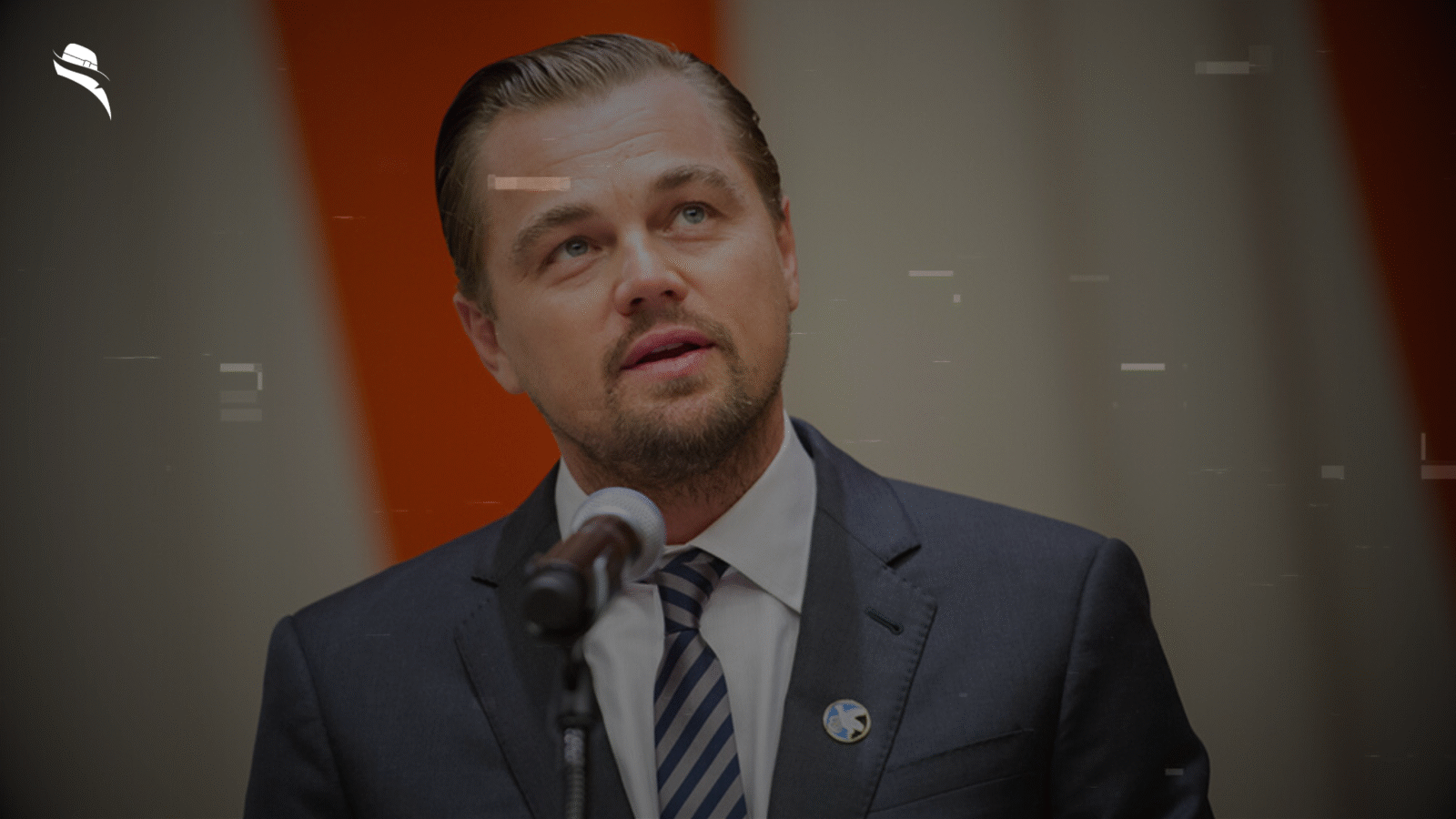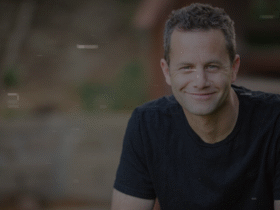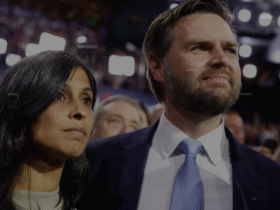Leonardo DiCaprio stance on Israel has come under intense scrutiny following his investment in a massive luxury hotel project recently approved by the Tel Aviv District Planning and Building Committee. The actor, who holds a 10 percent stake in the development, faces significant backlash amid ongoing regional conflicts.
Despite his role as a United Nations Messenger for Peace, DiCaprio is co-financing the $270 million complex that will span an impressive 12.6 acres at the Herzliya Marina. The eco-certified resort will feature 365 rooms across 14 floors, along with a conference center, fine dining restaurant, swimming pool, and direct yacht access. Furthermore, the 51,000-square-meter development aims to meet US Green Building Council standards for LEED certification, though critics question the timing and nature of such a luxury investment.
This article examines the details of DiCaprio’s controversial hotel project, analyzes the sustainability claims, explores the public backlash, and investigates the actor’s historical connections to Israel and political controversies that have emerged as a result.
Leonardo DiCaprio’s New Hotel in Israel: What We Know
The Herzliya Marina project represents one of the most ambitious hospitality developments in Israel’s recent history. Situated along the pristine Mediterranean coastline just north of Tel Aviv, this luxury complex occupies a prime waterfront location that offers both exclusivity and accessibility for high-end travelers.
Location and scale of the Herzliya Marina project
Nestled within the upscale Herzliya Marina district, the development spans an impressive 12.6 acres of premium coastal real estate. The architectural plans showcase a striking 14-story structure that will dominate the local skyline while offering panoramic sea views. At 51,000 square meters, the complex will house 365 luxury rooms and suites designed to attract affluent international travelers. Beyond accommodations, the property will feature extensive amenities including a conference center capable of hosting large-scale events, a signature fine dining restaurant, multiple swimming pools, and direct yacht access for guests arriving by sea.
Ownership structure and financial backing
The ownership consortium behind this venture includes several prominent investors, with Leonardo DiCaprio holding a notable 10 percent stake in the project. Financial backing for the $270 million development comes from a combination of international and Israeli investors who see strategic value in Israel’s growing luxury tourism market. Initially, the project faced regulatory hurdles before receiving official approval from the Tel Aviv District Planning and Building Committee, which gave the green light after reviewing environmental impact assessments and architectural plans.
Timeline from 2018 to 2025
The project’s journey began in 2018 with preliminary discussions and initial investment securing. Subsequently, the development team navigated a complex approval process through Israeli regulatory channels. Construction officially commenced after receiving final permits, with completion initially targeted for late 2024. Nevertheless, the project timeline now extends into 2025, accounting for various delays including construction challenges and regional tensions. Currently, the development remains in active construction phase as it progresses toward its anticipated grand opening.
Eco-Friendly or Greenwashing? Sustainability Claims Under Scrutiny
At the core of DiCaprio’s Herzliya Marina venture lies an ambitious sustainability vision that has become both a selling point and a lightning rod for criticism. The actor has positioned the development as a model for environmentally conscious hospitality worldwide.
LEED certification and green building standards
The hotel aims to meet the U.S. Green Building Council standards and obtain Leadership in Energy and Environmental Design (LEED) certification. This designation would place it among Israel’s most sustainable hospitality ventures, requiring rigorous adherence to internationally recognized green building protocols. DiCaprio himself declared in 2018 that the project “will serve as a model for environmentally friendly hotel development for the entire world”.
Design features promoting sustainability
According to developers, the hotel will implement sustainable practices across multiple domains, notably energy efficiency, water conservation, thoughtful site selection, responsible materials use, and indoor environmental quality. The Hagag Group specifically highlighted that DiCaprio’s involvement stemmed directly from the project’s environmental focus. Moreover, the actor has been actively participating in shaping the hotel’s sustainability vision rather than merely lending his name to the venture.
Critics question environmental integrity
Yet amid regional tensions, many have challenged the environmental claims. Social media critics have labeled the project as “greenwashing,” questioning how genuine environmental activism aligns with developing luxury accommodations in a politically contested region. One critic pointedly asked, “So the environmental activism was just an act, should’ve known”. Others expressed disbelief about the compatibility of eco-friendliness with regional humanitarian concerns, with one commenter stating, “Eco-friendly? With a nation that is starving children? This is a choice”.
Backlash Amid Conflict: Why the Timing Sparked Outrage
The news of DiCaprio’s hotel project approval coincided with one of the region’s most devastating humanitarian crises, igniting immediate controversy across global media platforms.
The Israel-Gaza conflict and humanitarian crisis
The hotel’s approval came during an intensifying conflict in Gaza that has resulted in over 60,000 Palestinian deaths and displaced nearly two million people over a 21-month period. UN Secretary-General António Guterres described the situation as a “humanitarian catastrophe of epic proportions” and “a moral stain on us all”. Reports indicate that among the casualties were approximately 18,000 children, creating a stark contrast between Gaza’s devastation and the luxury development.
Social media reactions and viral criticism
Online backlash was swift and fierce. Users across platforms labeled the investment “tone deaf,” “gross,” and “disgusting”. One commenter wrote, “@LeoDiCaprio climate activism feels hollow when it’s paired with a luxury yacht dock for the elite”. Others called it “performative environmentalism” and vowed to boycott his work. The controversy centered not just on environmental hypocrisy but also on the perceived political insensitivity.
Shaun King and other public figures speak out
Author and activist Shaun King became a prominent voice against DiCaprio’s investment, posting: “While Gaza Starves, Leonardo DiCaprio Is Building a 14-Story Luxury Hotel in Israel” and accusing him of “profiting from apartheid during a genocide”. Other public figures joined in questioning how the actor’s investment aligned with his role as a UN Messenger for Peace.
Accusations of hypocrisy and political insensitivity
Many critics pointed to an apparent contradiction: how could a UN Messenger of Peace invest in a luxury project while remaining silent about a conflict the UN itself had condemned? This perceived dissonance between DiCaprio’s public advocacy and private business ventures fueled accusations of moral inconsistency. As of publication, DiCaprio has not publicly responded to any of these criticisms.
DiCaprio’s History with Israel and Political Controversies
DiCaprio’s connections to Israel extend beyond his recent hotel venture, revealing a pattern of business engagement that has often clashed with his public persona.
Previous investments in Israeli startups
Prior to the Herzliya Marina project, DiCaprio quietly built a portfolio of investments in Israeli tech companies. The Oscar winner placed significant capital in mobility app Moovit and water conservation technology firm Watergen, both aligning with his environmental advocacy.
Relationship with Israeli public figures
Throughout the years, DiCaprio cultivated relationships with several Israeli business leaders and celebrities. His connections include friendship with billionaire entrepreneurs in Tel Aviv’s tech sector. These relationships ultimately facilitated his entrance into the Israeli hospitality market.
Leonardo DiCaprio Stance on Israel and the UN Peace role
In contrast to his business activities, DiCaprio has served as a UN Messenger of Peace since 2014, focusing primarily on climate change. Meanwhile, he has largely avoided making direct statements about the Israel-Palestine conflict, maintaining a strategic silence on regional politics despite his increasing financial stake in the area.
Public perception of his activism vs. actions
This perceived disconnect between DiCaprio’s environmental activism and business ventures has fueled criticism. Many observers question how someone championing global humanitarian causes justifies luxury developments in politically contested regions. Indeed, the contradiction between his peace ambassador role and investments in conflict zones remains unresolved in the public discourse.
Curious about where other celebrities stand on major global issues? Explore more profiles here.
Final Thoughts
The intersection of celebrity influence, environmental advocacy, and geopolitical tensions creates a complex portrait of Leonardo DiCaprio’s stance on Israel. Beyond the glittering façade of the Herzliya Marina development lies a deeper question about how celebrities navigate political landscapes while pursuing business interests.
DiCaprio’s silence regarding the controversy proves particularly striking given his history of vocal advocacy on other global issues. Yet this reluctance to address criticism highlights the challenging position public figures face when their investments intersect with international conflicts.
Ultimately, the backlash surrounding DiCaprio’s hotel investment reveals a growing public expectation that celebrities maintain consistency between their stated values and business decisions. In essence, audiences increasingly demand authenticity from influential figures, rejecting perceived contradictions between public advocacy and private ventures.
The controversy further illuminates how luxury developments in contested regions inevitably become political statements, regardless of investors’ intentions. For this reason, DiCaprio’s hotel project serves as a case study in how commercial ventures can unexpectedly thrust celebrities into complex geopolitical debates.
Coupled with ongoing humanitarian concerns in the region, the Herzliya Marina project demonstrates how seemingly straightforward business investments can become lightning rods for broader social and political discourse in today’s interconnected world.
FAQs
Q1: What is Leonardo DiCaprio’s involvement in the Israeli hotel project?
DiCaprio holds a 10% stake in a $270 million luxury hotel development at the Herzliya Marina in Israel. The resort is planned to include 365 rooms, a yacht-accessible marina, fine dining, and a conference center, and is being built to meet LEED environmental standards.
Q2: Why is this project facing backlash?
The announcement came during an ongoing humanitarian crisis in Gaza, where over 60,000 Palestinians have died since 2023. Critics argue that investing in luxury development during such devastation is tone-deaf and politically insensitive, particularly from someone who is a UN Messenger of Peace.
Q3: Has DiCaprio responded to the backlash?
As of publication, Leonardo DiCaprio has not made any public statement regarding the criticism or the humanitarian crisis in Gaza. His silence has fueled accusations of hypocrisy and moral inconsistency.
Q4: What are people accusing DiCaprio of?
Critics accuse him of “greenwashing” using environmental branding to distract from ethically problematic investments and of profiting from apartheid by backing a luxury project in a state under investigation for war crimes. Some also accuse him of violating the ethical expectations of his UN Peace role.
Q5: Does the project have any environmental merit?
Developers claim the hotel will meet LEED certification standards, incorporating energy efficiency, water conservation, and eco-conscious design. However, many activists argue that these environmental credentials cannot compensate for the political and humanitarian context in which the project is situated.
Q6: Why is the timing of this investment controversial?
The hotel’s final approval coincided with one of the most devastating periods in the Israel–Gaza conflict, prompting critics to question whether it is ethical to promote luxury development in a country currently engaged in a military campaign resulting in mass civilian casualties.
Q7: Is this DiCaprio’s first investment in Israel?
No. DiCaprio has previously invested in Israeli startups, including Moovit (a mobility app) and Watergen (a water tech company). His financial involvement in Israel predates the hotel and reflects long-standing business ties with Israeli entrepreneurs.
Q8: What has been the response from activists and public figures?
Prominent figures like Shaun King condemned DiCaprio’s investment, calling it “profiting from apartheid during a genocide.” Others labeled it “performative environmentalism”, criticizing the dissonance between DiCaprio’s activism and his business interests.
Q9: How does this affect DiCaprio’s image as a UN Messenger for Peace?
Many see his silence on the Israel–Palestine conflict as incompatible with his UN role, which emphasizes peace and humanitarian values. The controversy raises doubts about the sincerity and consistency of his public advocacy.
Q10: Can celebrity investments really be apolitical?
In today’s political climate, particularly when tied to regions in active conflict, no high-profile investment is ever truly apolitical. Critics argue that by choosing to do business in Israel, especially amid such conflict, DiCaprio made a political statement, intentionally or not.







Leave a Reply